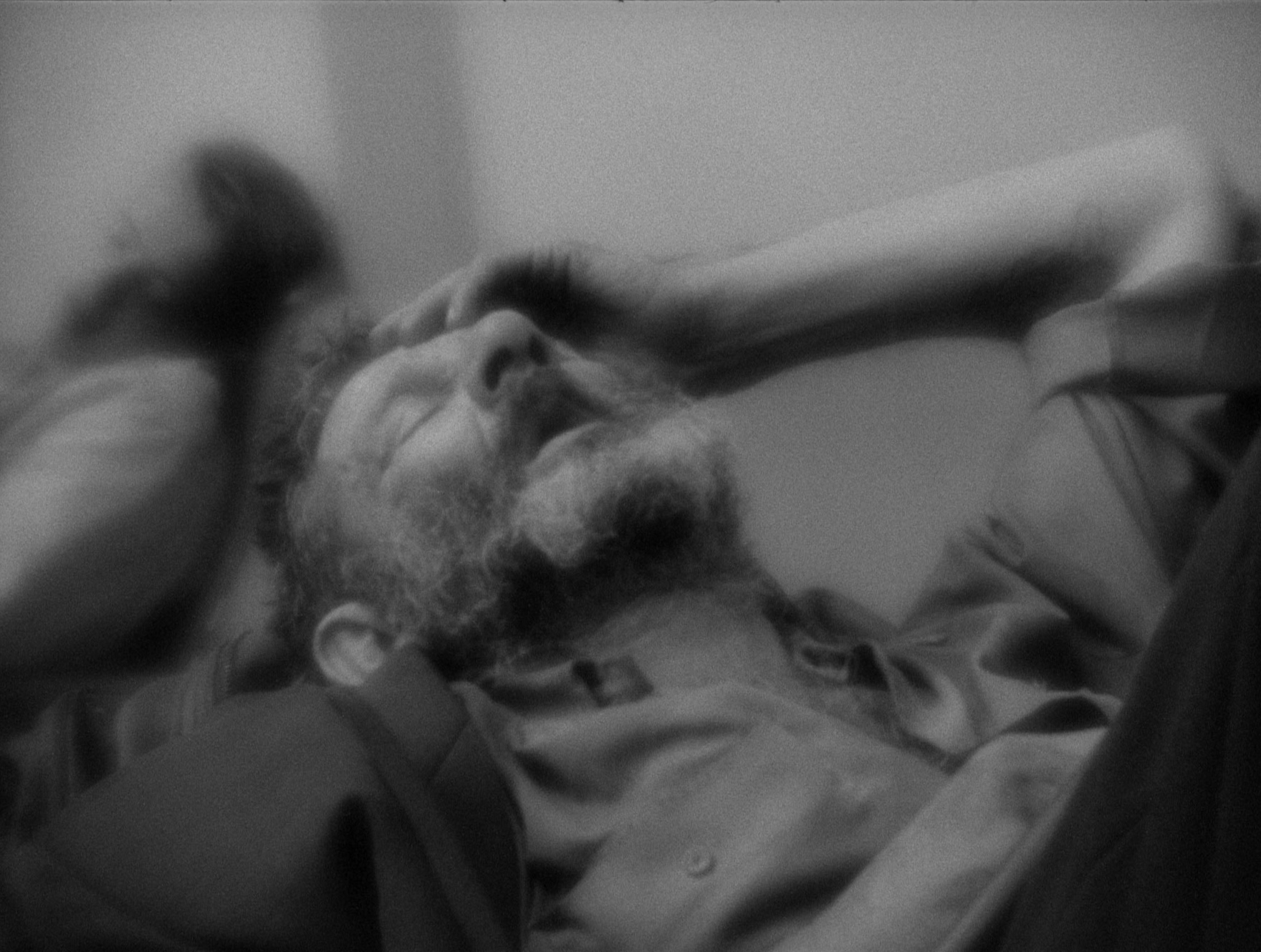
Speeding trains slice through the silence of the small train stop. The whistle on the locomotive and the thunder of the wheels disappear into the night, but fail to wake up people at the station. People just continue to sleep. What do they wait for? What will wake them up?
EN
“The cinema of Sergei Loznitsa always has a starting point: an image without movement, a snapshot. From this static image (black and white in his early works), the flow of time is absent: faces and landscapes seem motionless in time, almost time-less. The soft rustle of the wind or imperceptible movements in the background constitute the only reminder that the time [contained] in the image indeed exists and flows. This subtle, almost indiscernible movement of time, however, is reversed by the way Sergei Loznitsa handles sound. Often asynchronous, recorded and processed posteriori, the sound supplies the image with its missing dimension of time, provides the movement that is otherwise absent. Finally, the sound ascribes an unexpected and surprising depth.”
Dimitris Bampas1
“The waiting room is a place of solitude, but suddenly the filmmaker captures the flash of the anonymous hands of a group of sleepers like the foam of a whirlpool.
[...]
The succession of these portraits of sleepers arouses in us a feeling that the night has entered our gaze, as if we have been suddenly physically transported to this second life which is our dreams, its gates separating us from the invisible world, as Gérard de Nerval believed.”
Serge Meurant2
- 1Dimitris Bampas, “Strange places. Notes on the documentaries of Sergei Loznitsa,” in Sergei Loznitsa, ed. Dimitris Kerkinos. (Thessaloniki: Thessaloniki International Film Festival Publication, 2011): 11-12.
- 2Serge Meurant, “The Train Stop,” Sabzian, 4 December 2024. Originally published in Sergei Loznitsa (2011), a booklet made for the 13th Thessaloniki International Film Festival.
FR
« Les visages qu’il nous présente dans L’attente (The Train Stop nommé en français L’attente..., Portrait ou Paysage) produisent une attente de quoi ? Du temps : ces situations nous poussent à faire perdurer cette écoute et ce regard écarquillés un moment de plus. Écoutez encore nous dit son cinéma. Il nous invite à nous tenir là, face à la globalité sonore du paysage, du proche au lointain, mais particulièrement face au lointain. Il nous y tient dans une sous-définition, dans le flou de l’éloignement, ajoutant au flou de la prise de son, comme il le fait dans The Letter avec le flou de la prise de vue. Un flou qui amplifie le rêve, une approximation, une incertitude du trait, pourvoyeuse d’imaginaire. »
Daniel Deshays1
« Lorsque j’étais enfant, nous allions rendre visite à ma grand-mère. Nous voyagions en train de nuit et nous étions obligés de changer de train en pleine nuit. Il y avait une salle d’attente réservée aux mères et à leurs enfants. C’était une très grande pièce avec beaucoup de lits. Elle était éclairée par une unique lampe située, à l’extérieur, derrière la fenêtre. Nous arrivions très tard. Tout le monde dormait déjà. Et nous repartions alors que personne n’était encore éveillé. Nous sortions à tâtons car le jour n’était pas encore levé. Nous étions alors dans un état entre veille et sommeil. Nous avions encore envie de dormir. Nous trébuchions presque. Nous nous sentions vivre dans une autre réalité. Il y avait un abîme entre ces deux états. Le souvenir de cette atmosphère de la salle d’attente des mères et des enfants m’est revenu lorsque je réalisai ce film. »
Sergei Loznitsa2
« La salle d’attente est un lieu de solitude, mais soudain le cinéaste capte le jaillissement de mains anonymes d’un groupe de dormeurs comme l’écume d’un tourbillon.
[...]
La succession de ces portraits de dormeurs suscite un sentiment d’intromission de la nuit en notre regard, comme si nous étions soudain physiquement transportés dans cette seconde vie qu’est le rêve, ces portes qui nous séparent du monde invisible, comme le pensait Gérard de Nerval. »
Serge Meurant3
- 1Daniel Deshays, “La poétique sonore de Sergueï Loznitsa,” Sabzian, 27 novembre 2024. Publié à l’origine dans Images Documentaires 88/89, juillet 2017.
- 2Serge Meurant, “Témoins accidentels. Entretien avec Sergueï Loznitsa,” Sabzian, 4 décembre 2024. Publié à l’origine dans Images Documentaires 50/51 en 2004.
- 3Serge Meurant, “L’attente de Sergueï Loznitsa,” Sabzian, 4 décembre 2024. Publié à l’origine dans Images Documentaires 50/51 en 2004.

